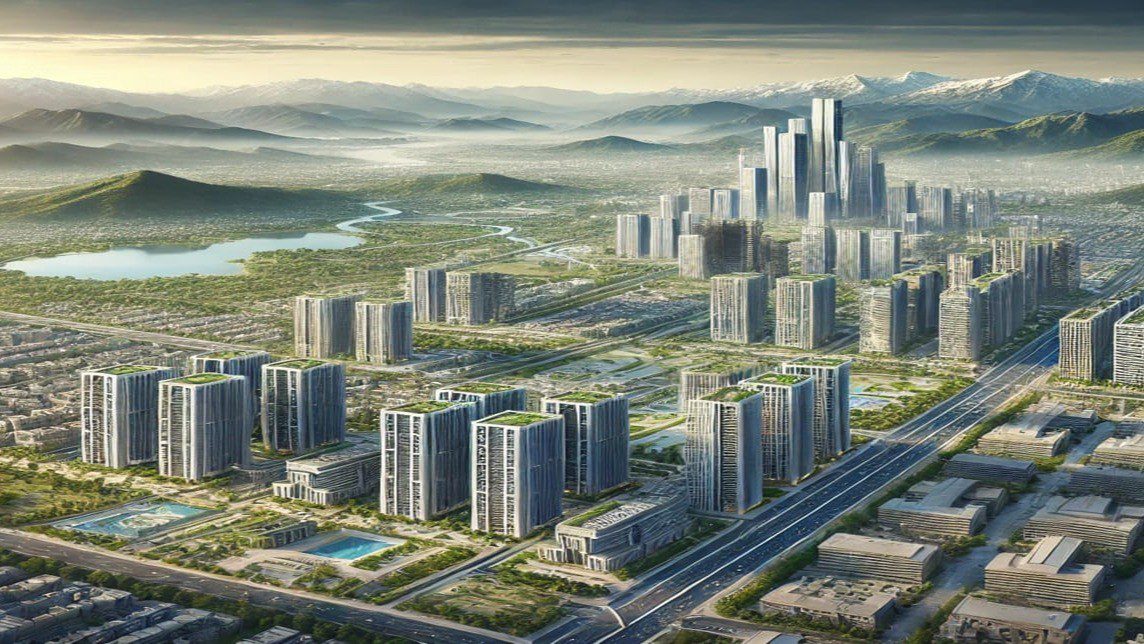The Evolution of Vertical Cities: Why High-Rise Living Is the Future of Urban Pakistan

Introduction
As Pakistani cities continue to expand, the race between land scarcity and population growth intensifies. The traditional horizontal sprawl no longer meets the demands of fast-paced urbanization, which is why vertical living—a global urban trend—is now reshaping the skylines of Pakistan’s major cities. High-rise residential developments are becoming the new normal, offering sustainable, scalable, and community-centric living solutions.
Real estate pioneers like Propverge are leading this vertical revolution with standout projects like Falaknaz Greens, One Beverly, and The Mega Mall, each showcasing the potential of upward growth in modern urban design.
The Demand for Vertical Living in Pakistan
Pakistan’s urban population is growing at over 3% annually. With rising demand for housing and limited available land in prime city zones, vertical expansion is a logical and necessary solution. The government’s push for high-rise projects—especially in areas under infrastructure stress—has further accelerated this trend.
High-rises help:
Accommodate more people per square foot
Reduce urban sprawl and environmental degradation
Enable efficient utility and resource distribution
Improve traffic flow by clustering homes near work and commercial centers
Vertical cities make efficient use of limited land while modernizing urban experiences.
Falaknaz Greens: Vertical Living for Families
While the idea of high-rise living can seem intimidating to families used to traditional bungalows, Falaknaz Greens breaks the stereotype. With thoughtfully designed apartment towers, integrated parks, family play areas, and security systems, it provides vertical housing without compromising on space, safety, or lifestyle.
Multiple floors of residential units are organized to encourage privacy, natural ventilation, and scenic views—making it ideal for modern family life in a secure, eco-conscious environment.
One Beverly: Luxury Above the City
One Beverly redefines the concept of premium vertical living. Positioned as a smart luxury residence, this high-rise development includes features like:
High-speed elevators
Smart home integrations
Penthouse-level amenities
Rooftop gardens and sky lounges
Its vertical layout doesn’t just save land—it creates exclusivity and elegance. For young professionals, entrepreneurs, and those looking to upgrade their lifestyle, One Beverly offers a fusion of modern convenience and aspirational living at great heights.
The Mega Mall: Mixed-Use Vertical Urbanism
The Mega Mall demonstrates how high-rises can blend residential, retail, and commercial space into a vertical ecosystem. It brings housing, shopping, dining, and entertainment into one vertical footprint—dramatically reducing the need for long commutes and car dependency.
Its mixed-use approach is especially attractive for:
Small business owners
Investors seeking rental income
Urban families who prefer accessibility over commute
Residents live just floors away from essential services, encouraging walkability and maximizing time efficiency.
Environmental & Economic Advantages
Vertical cities offer several environmental and economic benefits, making them an ideal long-term solution:
Land Conservation: Reduces the need to expand cities horizontally, preserving agricultural and green land.
Energy Efficiency: Centralized systems (e.g., water, heating, cooling) are easier to manage and often more eco-friendly.
Infrastructure Optimization: Roads, sewage, and electricity are more efficiently distributed within vertical zones.
Job Creation: Mixed-use high-rises encourage local employment through retail and service centers on lower floors.
With Pakistan facing increasing environmental concerns, vertical living aligns well with sustainable urban development goals.
Community Building at New Heights
Contrary to belief, vertical buildings can foster strong community bonds. Modern high-rises are designed with:
Shared clubhouses and community halls
Recreational areas and rooftops
Event spaces and fitness centers
At Falaknaz Greens, these common areas become social hubs, while One Beverly offers exclusive floors dedicated to wellness and leisure.
High-rise living doesn’t mean isolation—it offers shared experiences in a vertical village.
Addressing Challenges with Innovation
Critics often cite privacy concerns, noise issues, or elevator dependency as drawbacks of high-rise living. But modern vertical designs tackle these head-on with:
Soundproof walls and flooring
Zoned elevators with smart queue systems
Floor-specific security and concierge services
Developers like Propverge prioritize user experience by adopting global best practices in vertical architecture and management.
Real Estate Investment in Vertical Developments
From an investor’s perspective, high-rises offer excellent ROI. Apartments in tall buildings are in high demand due to their views, amenities, and safety. Properties in projects like One Beverly and The Mega Mall are consistently rented or sold faster than low-rise alternatives.
Additionally, vertical projects appeal to a broader demographic—professionals, families, and overseas investors—ensuring a diversified and resilient investment portfolio.
Final Thoughts
The future of Pakistan’s urban growth lies in the sky. High-rise living is no longer just an option—it’s a necessity born out of practicality, innovation, and urban survival. Vertical cities present a chance to redesign how we live, work, and connect in dense urban environments.
With projects like Falaknaz Greens, One Beverly, and The Mega Mall, Propverge is not just building upward—they’re building smarter, greener, and more connected urban communities.
As vertical living gains momentum, those who embrace it early—whether for living or investment—will stand at the forefront of a real estate revolution.


